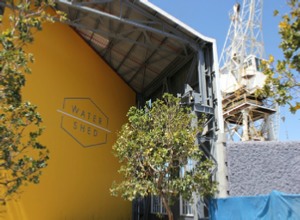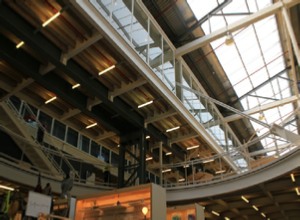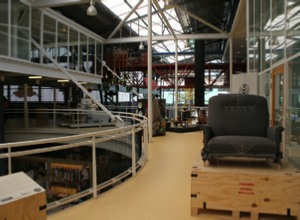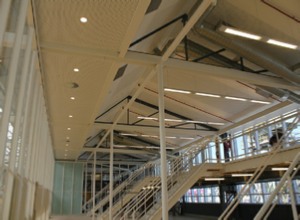











|
Workshop 17 - Architectural Acoustics Design |
|
|
Client |
Wolf Architects |
|
Project Expertise |
Acoustic Modelling - Odeon Software |
|
|
Architectural Acoustic Design |
|
|
Large Volume Room Acoustics |
|
|
|
|
The Project - from www.bdlive.co.za |
|
|
THE University of Cape Town (UCT) Graduate School of Business and the V&A Waterfront on Tuesday announced the launch of Workshop 17, an innovation hub that will be South Africa’s equivalent of MIT, the Massachusetts Institute of Technology. This is the latest initiative in the country to foster innovation, which is seen as a way to facilitate economic development and create jobs. "Enterprise development is key to economic development in South Africa and economic growth requires business leaders and business schools to assume moral custodianship and work together with partners to create a supportive environment that fosters enterprise business development in our country," V&A Waterfront CEO David Green said. "Significant job creation can only come from entrepreneurship and innovation." Workshop 17 will be housed in the former South African maritime museum. "Workshop 17 is a physical space," MIT’s entrepreneur in residence, Julius Akinyemi, said. Mr Akinyemi said he would be "lending his capabilities to the project, which mimics MIT’s model". He said there were three main streams of participation in the project. First, five UCT masters students — the "core intellectual capacity" — were "studying a new curriculum" at the business school that focused on innovation. Their backgrounds ranged from metatronics to information security. Second, there would be linkages with other innovation hubs, who could become members of Workshop 17. Third was citizen engagement, Mr Akinyemi said. "The location is going to be open to all citizens … to (find out about) their problems." UCT Graduate School of Business-based Bertha Centre for Social Innovation and Entrepreneurship provided the initial funding of R1.5m, and UCT’s Vice-Chancellor’s Strategic Fund made R3.6m available to fund operational costs. When asked how Workshop 17 would bridge the innovation chasm — the space between a prototype and commercialisation, which is where most South African innovation fails — Mr Akinyemi said the project would provide business incubation and create linkages with venture capital funds. The intellectual property developed at Workshop 17 would belong to the "common pool of members", he said, but the membership fee had not yet been decided. |
|

| Overview |
| Professional Associations |
| Key Advantages |
| Social Development |
| Gallery |
| Videos |
| Articles |